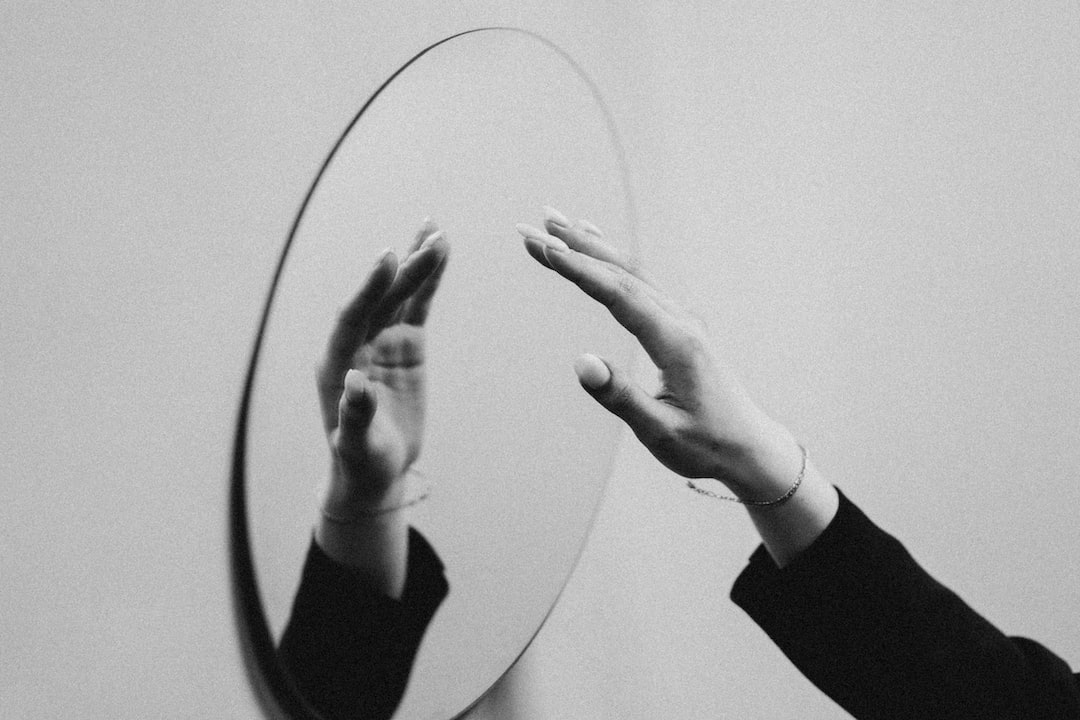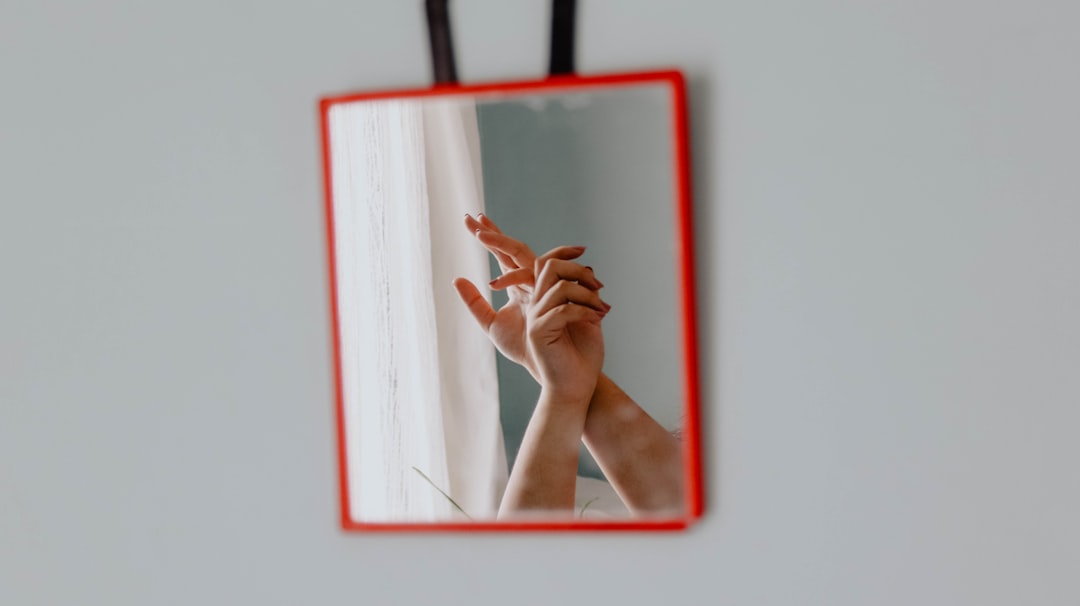Self-reflection is the process of examining one’s thoughts, emotions, and behaviors to gain a deeper understanding of oneself. It is a valuable tool for personal growth because it allows individuals to evaluate their past experiences, assess their current situation, and set goals for the future. When practiced regularly, self-reflection can lead to improved self-awareness, emotional intelligence, and decision-making skills.
It’s easy to get caught up in the hustle and bustle of daily life and forget to take the time to reflect on our experiences. However, taking a little time for introspection can help us make better choices and live more fulfilling lives.
You might be asking yourself, “Why is self-reflection so important?” Well, for starters, it allows us to gain a deeper understanding of ourselves. Often, we go through life on autopilot, without questioning our thoughts, beliefs, or actions. When we take the time to reflect on our experiences, we can identify patterns and behaviors that may not be serving us well. This self-awareness can lead to personal growth and better decision-making.
In addition to improving self-awareness, self-reflection can also lead to better emotional intelligence. By examining our thoughts and feelings, we can better understand the motivations behind our actions. This can help us communicate more effectively with others and manage our emotions in a healthier way.
Finally, self-reflection can also lead to better decision-making skills. When we take the time to evaluate our experiences, we can identify what worked well and what didn’t. This can help us make better choices in the future and avoid making the same mistakes again and again.
Overall, self-reflection is a powerful tool for personal growth. In the following sections, we’ll explore different techniques for practicing self-reflection, as well as tips for overcoming common obstacles to this practice. So, let’s get started!
Benefits of Self-Reflection
As we discussed in the introduction, self-reflection is a crucial component of personal growth. Not only does it allow us to understand ourselves better, but it also improves our emotional intelligence and decision-making skills. In this section, we will explore these benefits in more detail.
Firstly, self-reflection increases our self-awareness. This means that we become more in tune with our emotions, thoughts, and behaviors. By understanding what makes us tick, we can identify areas of our lives that require attention and change. This, in turn, leads to increased happiness and a more fulfilled life.
Secondly, self-reflection improves our emotional intelligence. Emotional intelligence is the ability to understand and manage our own emotions, as well as the emotions of others. By engaging in self-reflection, we become more empathetic and better able to communicate with those around us. This leads to stronger relationships, both personally and professionally.
Finally, self-reflection enhances our decision-making skills. By reflecting on our past decisions and experiences, we can identify what worked and what didn’t. This enables us to make better decisions in the future, leading to improved outcomes in all areas of our lives.
Overall, the benefits of self-reflection are numerous and impactful. By practicing self-reflection regularly, we can become more self-aware, emotionally intelligent, and decisive individuals.
This enables us to make better decisions in the future, leading to improved outcomes in all areas of our lives.
How to Practice Self-Reflection: Techniques to Try
Self-reflection is a powerful tool that can help you grow and develop as an individual. In order to harness its benefits, it’s important to know the various ways in which you can practice self-reflection. Here are a few techniques that you might find helpful:
Journaling: One of the most popular techniques, journaling involves writing down your thoughts and feelings. You might choose to write about your day, your goals, your fears, your mistakes, or anything else that’s on your mind. By taking the time to put your thoughts in writing, you can gain valuable insights into your own life.
Meditation: Meditation involves sitting quietly and focusing on your breath, your body, or a specific thought or image. Many people find that meditation helps them calm their minds and gain clarity about their feelings and thoughts.
Seeking feedback: Sometimes, the best way to gain insight into yourself is to ask others for their thoughts and feedback. You could ask a friend, family member, therapist, or mentor for their thoughts on your behavior or decisions. Be open to both positive and negative feedback.
Mindfulness: Mindfulness is the practice of being present and fully engaged in the moment. By paying attention to your thoughts, feelings, and surroundings, you can gain a greater understanding of your own mind and how it works.
These are just a few techniques to try, but there are many others as well. The key is to find what works best for you and make it a habit.
It’s also important to note that self-reflection can be challenging at times. You might find yourself struggling to face uncomfortable truths or to make changes to your behavior. That’s why it’s important to also develop strategies for overcoming obstacles to self-reflection.
Next in our post, we’ll explore some of the most common obstacles to self-reflection and how you can overcome them.
You could ask a friend, family member, therapist, or mentor for their thoughts on your behavior or decisions.
Overcoming Obstacles to Self-Reflection
While self-reflection can be a powerful tool for personal growth and development, it can also be challenging to get started. Below are some common obstacles people face when it comes to practicing self-reflection and some tips for overcoming them.
Time Management
One of the biggest obstacles to self-reflection is finding the time to do it. Between work, family, and other commitments, it can be tough to carve out a few minutes to sit down and reflect on your thoughts and feelings. However, it’s important to make time for self-reflection if you want to experience its benefits.
One way to overcome this obstacle is to schedule self-reflection time into your day. Whether it’s first thing in the morning, during your lunch break, or right before bed, find a time that works for you and stick to it. Consider setting a reminder on your phone or calendar to remind you to take some time for yourself each day.
Fear of Vulnerability
Another common obstacle to self-reflection is the fear of being vulnerable. It can be scary to examine your thoughts and feelings, especially if you’re worried about what you might find. However, it’s important to remember that self-reflection is a safe space for you to explore your inner world without judgment.
To overcome this obstacle, try starting with small, manageable topics for self-reflection. For example, you might start by reflecting on a pleasant experience you had recently, rather than diving deep into a difficult topic right away. As you become more comfortable with self-reflection, you can gradually work your way up to more challenging topics.
Resistance to Change
Finally, another obstacle to self-reflection is resistance to change. When we take the time to examine our thoughts and feelings, we may realize that we need to make some changes in our lives. This can be scary and uncomfortable, and it’s natural to feel resistant to making these changes.
To overcome this obstacle, try to adopt a growth mindset. Remember that change is a natural part of growth and development, and that making changes in your life can ultimately help you achieve your goals and improve your overall well-being. Also, focus on the benefits that come with change rather than the discomfort that might come with it.
By overcoming these obstacles, you can unlock the benefits of self-reflection and make it a regular part of your daily routine.
Consider setting a reminder on your phone or calendar to remind you to take some time for yourself each day.
Examples of Successful Self-Reflection
Self-reflection is not an easy practice, especially when it comes to being vulnerable and taking a good, hard look at oneself. However, those who have committed to self-reflection and made it a habit have experienced some truly transformative moments. In this section, we will explore some powerful examples of successful self-reflection.
One such example is that of a young entrepreneur who experienced a major setback after investing a considerable sum of money in a business venture that failed. Instead of wallowing in self-pity, she made the decision to take a step back and reflect on what went wrong. Through consistent self-reflection, she was able to identify areas of weakness in her leadership skills, management style, and decision-making processes. She took this newfound self-awareness and implemented changes to her approach to business that ultimately led to her success in the industry.
Another example is that of a former addict who attributed his sobriety to the practice of daily self-reflection. In his case, self-reflection allowed him to identify the root causes of his addiction and make the necessary lifestyle changes to combat it. Through honest reflection, he was able to recognize the negative patterns of behavior that led to his addiction and work towards breaking these patterns.
These are just two examples of the many successful stories of self-reflection. Each story emphasizes the fact that successful self-reflection requires a commitment to honesty, vulnerability, and a willingness to change. By taking the time to reflect on our thoughts, actions, and experiences, we can gain a deeper understanding of ourselves, our motivations, and our goals. This understanding can be the catalyst for positive change and personal growth.
As you practice self-reflection, it’s important to remember that everyone’s journey is unique. Your experiences and insights are entirely your own, and that’s what makes self-reflection so powerful. So take the time to reflect on your own life, and don’t be afraid to dive deep and get vulnerable with yourself. The rewards of self-reflection are well worth the effort.
Through consistent self-reflection, she was able to identify areas of weakness in her leadership skills, management style, and decision-making processes.
Incorporating Self-Reflection into Daily Life: Tips for Making Self-Reflection a Habit and Integrating it into Routines
Now that you understand the benefits of self-reflection and how to practice it, the next step is to incorporate it into your daily routine. Making self-reflection a habit requires a bit of effort and dedication, but it’s worth it in the long run. Here are some tips on how to make self-reflection a part of your daily life:
1. Schedule time for self-reflection: Setting aside some time to reflect on your day or week helps you stay consistent in self-reflection. Block some time on your calendar, maybe right before bed or during a morning coffee break, to reflect on your thoughts and feelings.
2. Keep a journal: A journal can serve as a tool for reflection. Writing down your thoughts and experiences allows you to revisit them at a later date and gain insights into your emotional state and growth over time.
3. Use prompts: If you’re unsure about what to reflect on or need a starting point, there are many self-reflection prompts available online. Questions like “What am I grateful for?” or “What did I learn from this experience?” can help you dig deeper into your thoughts and feelings.
4. Seek feedback: Talking to someone you trust about your experiences can provide new perspectives and insights you might have missed. Ask a friend or mentor for their thoughts on a specific situation or experience.
5. Practice mindfulness: Mindfulness meditation or other mindfulness practices can help you become more aware of your thoughts and emotions in the present moment. This awareness can help you identify patterns and triggers that you want to reflect on.
Remember, self-reflection is a personal journey, and what works for one person may not work for another. Be open-minded, and don’t be discouraged if you miss a day or two of reflection. The most important thing is to stay committed to the practice of self-reflection and embrace the growth it can bring to your personal and professional life.
Conclusion: Recap of the Power of Self-Reflection and Encouragement for Readers to Practice It for Their Personal Growth
Congratulations! You’ve made it to the end of our blog post about self-reflection. We hope you’ve found it informative and helpful in your personal growth journey.
As we’ve discussed, self-reflection is an essential tool for improving self-awareness, emotional intelligence, and decision-making skills. Through techniques such as journaling, meditation, and seeking feedback, you can gain valuable insights into yourself and your life.
Of course, as we’ve also discussed, there are obstacles to self-reflection. Time management, fear of vulnerability, and resistance to change are all common barriers that can prevent us from engaging in self-reflection. But with dedication and persistence, these barriers can be overcome, and the benefits of self-reflection can shine through.
Don’t just take our word for it. There are countless examples of individuals who have successfully incorporated self-reflection into their lives and seen remarkable benefits. Whether it’s a personal anecdote or a case study, these stories show us that self-reflection is not only possible, but it can be life-changing.
So, what’s next? We encourage you to take the first step in your self-reflection journey by trying out one of the techniques we’ve mentioned in this post. Whether it’s journaling, meditation, or seeking feedback, find what works for you and make it a regular part of your routine.
Remember, personal growth is a lifelong journey, and self-reflection is a key part of that journey. It’s not always easy or comfortable, but it’s always worth it. We hope you’ll join us on this journey of self-discovery and growth. Happy self-reflecting!





